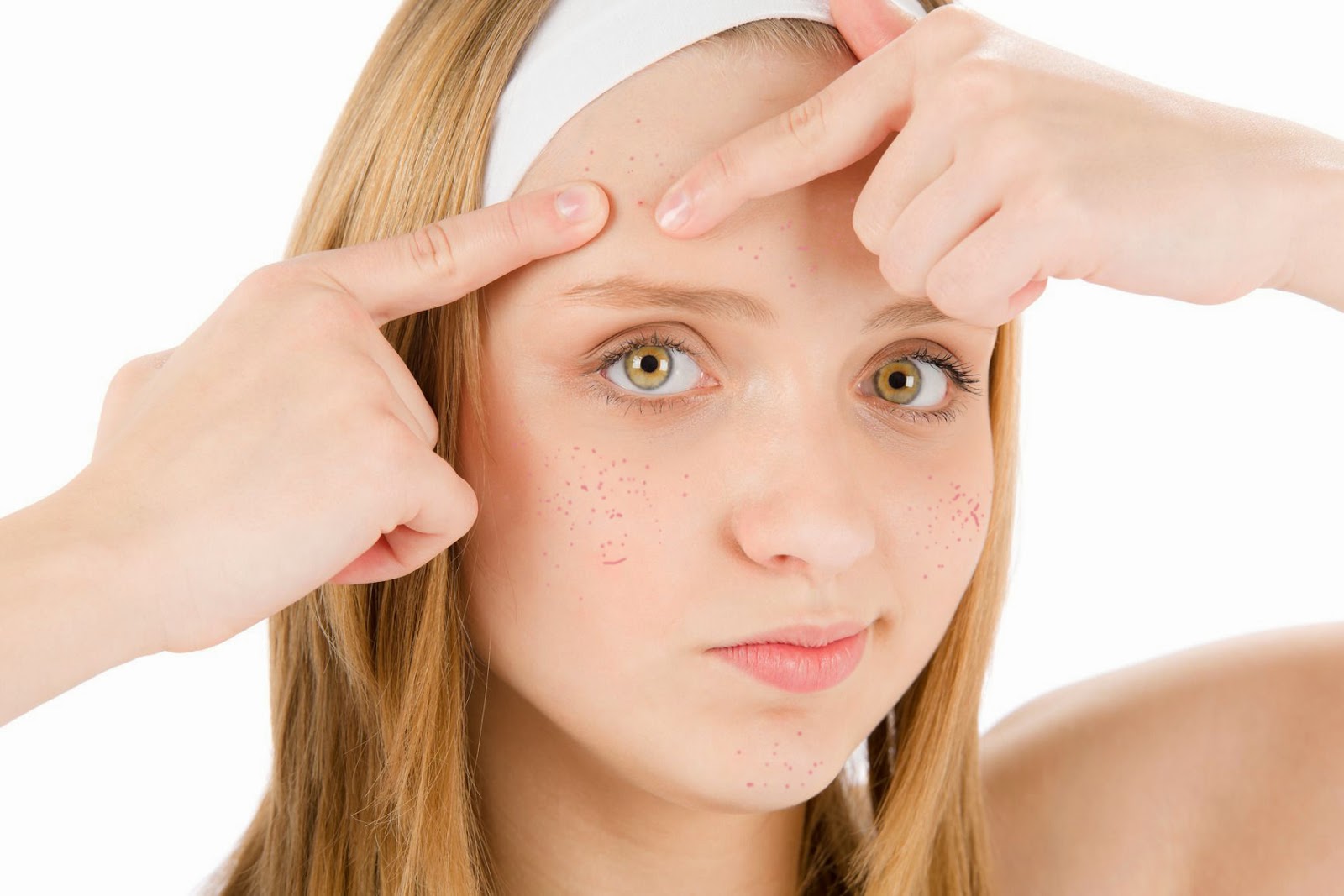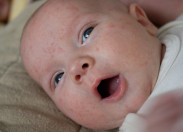Acne can be an awful and frightening experience for many. Acne, which in medical terms is also known as Acne Vulgaris, is a very common skin infection affecting a wide range of people. Often appearing as small painful bumps on your skin, these bumps can sometimes produce an unsightly and irritating pus. Acne outbreaks can surely be uncomfortable and unnerving to many. That’s why we’re here to help.
The aim of this article is to explain to you in depth, yet in a simplified way, how and why acne occurs. Before starting any acne treatment, it is very important for a person to understand the underlying causes of the problem. Only when you know the cause of your acne will you be able to get the best acne treatment for yourself. Also, before we delve into the causes of acne, we would like to remind you that acne is a temporary skin infection, not a disease, which can happen to anyone and at any age.
We know it can be depressing, but we would like to stress the fact that the advances in science have moved so far ahead, that there is not just one, but multiple solutions to cure acne. There is a cure for it no matter how aggressive it is. So please, do not be disheartened!
The first misconception that I would like to clarify is that acne occurs only among teenagers and young people. This is not true. Acne is a skin condition that can manifest itself on anyone, across all genders, age and race. Most of you may be under the belief that acne is caused by fatty foods, oil, dirt, pollution, etc. While these factors may be true to some extent, there are other major causes as well, which most of us aren’t aware of or don’t know much about the details. In this article we will be delving into details about the factors that cause acne.
How Can I Tell If I Have Acne?
Acne usually manifests itself in the form of small, reddish pus formations on the face, neck, back and the chest. Sometimes it can erupt under the skin and is quiet painful. Acne can also evolve into black heads and white heads which can be much more prominent and unsightly.
The Science Behind Acne
In teenagers acne is caused due to a rise in androgen levels. Androgens are male hormones that stimulate the development of male characteristics and traits. While both the female body and the male body have androgens, typically the male body has more of them. Both body types need androgens but in different amounts with men typically needing more than women. When a child approaches their teens, he or she usually encounters acne outbreaks. When a child hits puberty his or her body undergoes a hormonal upheaval that often leads to these frequent acne outbreaks.
You might be wondering what a rise in the androgen level has to do with acne. Have you ever noticed that your face has tiny pores all over it? Our skin has oil glands called, in medical terms, sebaceous glands. The function of the sebaceous gland is to secrete oil/wax also known as the sebum. The main function of the sebum is to protect the skin and hair and make them moisture proof. These glands are present everywhere, especially on the face, scalp and back. These are the areas where you are prone to get lots of acne. These glands, however, are not present in the palms of our hands and the soles of our feet. The tiny pores mentioned above are connected to these sebaceous glands through follicles. Think of these follicles as small canals or tunnels.
To understand better, visualize lots of tiny pores that are connected to oil producing glands through a canal. When the glands secrete the oil, it travels through the follicles and gets excreted by the skin, which is why we sweat. Of course, there is also another positive side to it. This is also the process that the body uses to get rid of dead skin.
The aim of explaining the process of the sebaceous glands is so that you begin to understand how it plays a major role in causing acne. The production of oil/ wax by the body is directly proportional to the androgen levels in the body. The higher the androgen levels, the higher the oil production by the body. When the androgen levels in the body rise they in turn cause the sebaceous glands to grow, which in turn results in more oil production. The extra oil production by the body, along with the dead skin that the follicle carries, mix together and form a small clog; thereby giving bacteria a perfect ground to thrive in. If this area becomes infected with bacteria, it results in red, painful inflammations, which we know as acne.
Now that the medical explanation is behind us, let us now discuss some factors that may contribute to getting acne.
16 Factors That Can Lead to Acne
- Acne in Women
Most women have complained about having acne at some point during their lifetime. In addition to developing acne during their teen years, like men, women also seem to develop acne during their menstrual cycle and pregnancy. It is known that before a woman has her menstrual cycle, that her body undergoes a hormonal imbalance (mostly noticed as “mood swings”). The same hormonal change can be observed during the first three months of her pregnancy. During these times, due to the ups and downs of the hormones, she may experience acne. - Polycystic Ovary Syndrome (PCOS)
We intentionally are highlighting this cause separately because of the rate at which it is being detected among women. PCOS or Polycystic Ovary Syndrome, has become more widespread in today’s women. PCOS is caused by the formation of multiple cysts inside the ovary as a result of a hormonal imbalance. PCOS can cause many symptoms such as weight gain and acne. - Testosterone
Testosterone is the hormone responsible for the sexual characteristics in the human body. When a child hits puberty there is a change in the levels of testosterone. Any change in hormones is going to have an effect on the oil secreting glands (sebaceous glands). The sebaceous glands produce more oil and in turn increase the potential for clogs to occur and generate acne. - Genetics
Although research is still actively going on, it is believed that acne can be hereditary as well. That is, if your parents had it, you might get it too. It has also been suggested that if both your mother and father had acne issues, you have a greater risk of having more sever acne problems. - Oral Contraceptives
Oral contraceptive pills, also known as OCP’s, are consumed by women to avoid conceiving a child. These pills, also known as the birth controlling pills, prevent pregnancy by restricting the release of luteinizing hormones and follicle stimulating hormones. This results in making fertilization difficult. The effect of the imbalance in the above mentioned hormones and the progesterone cause eruption of acne in some people. - Medicines
Most medicines do not cause acne. However, sometimes medications, which have certain components, which we will discuss shortly, if taken in high dosages, can cause acne. Steroids that are present in some medicines can cause acne. Steroids play around with the hormones in the body, which in turn increases the chances of getting acne. Also, certain medicines that contain lithium, lithium chloride and a few forms of iodine, can also cause acne. If you feel that your acne is a result of taking any medication, you should immediately consult your doctor. They will be able to advise you and help you deal with any side effects. - Acne Cosmetica
This is a very common form of acne. While other factors may not be under your control, this one is. Acne caused by cosmetics is known as Acne Cosmetica. While it may be easier to just blame the cosmetics for causing acne, it’s really the improper way we use it. A common mistake is forgetting to clean the tools used to apply the makeup, like brushes and combs, as often as we should. They are the most common source of getting acne. Over a period of time, these tools get dirty, and when applied to the skin, they release these particles in the pores and irritate the skin. Clogged pores can lead to acne and infection if not treated. - Oily Hair and Skin
People with oily hair and skin can have problems with acne if they don’t take steps to control the oil. For example, oil left on the pillow, from your hair, can get onto your face and clog your pores. Also, for those with oily skin, using a high moisture content moisturizer, can clog the pores as well. It is very important to pick and chose the cosmetics according to your skin type and sensitivity. The type of lotion, cleanser, foundation, or primer should be complimentary with your skin. You should also take care of cleaning your face before going to sleep. Often small little steps, if taken, can prevent acne. If these steps are ignored, they can result in really large breakouts of acne on the face. - Touching the Face Often
If you have acne, touching it will only aggravate it. Your hands are most prone to catching dust and dirt. Touching your acne with dirty hands will only increase the chances of infection within the acne. Even touching acne with clean hands is not recommended. Often the acne secretes a sticky liquid substance. When this spreads it only encourages more bacterial growth. So don’t touch! The same goes for popping a pimple. Every time you pop one, the liquid spreads causing inflammation, redness, irritation and more acne. - Stress
Although research is still underway, it is believed that stress can also cause acne. High levels of stress can lead to some hormonal imbalances due to the brain giving different signals. This in result can cause acne. For example, it is noticed that some students develop acne during their exams, normally a stressful time. - Weather Changes
Many people claim that certain changes in the weather prompt their acne to flare up. Often people with acne notice that they breakout when humidity and temperatures are very high. This is usually caused by the high moisture content in the air. The body’s natural reaction is to sweat to cool down. This extra oil and water on your skin has an increased chance to clog your pores, increasing the bacteria formation, which may lead to acne. - Air Pollution
People that live in large cities tend to see an increase in acne. The air is filled with pollution thanks to endless vehicles, factories and other pollution emitting entities. The air is full of dust, dirt and allergy causing chemicals. These particles often settle down on the acne prone area and clog the pores. As we discussed earlier these clogged pores act as bacterial sites for the acne to grow. - Clothes
Often the clothes that rub against our body can cause acne. First of all, acne can be caused due to clothes, which are not regularly washed and dried. This is especially true for towels that are used day after day without being washed and cleaned. These towels, especially face towels, contain bacteria from the previous uses. Bacteria can grow because the towel is left moist after wiping the face.
Another cause can be covering the acne breakout area with clothes. Hats, caps, scarves etc., can rub against the acne prone area and aggravate it. The constant rubbing against the sensitive skin will only spread the infection and cause more redness, irritation and skin sensitivity. It will make it a breeding ground for acne. - Washing the face often
A common mistake that people with acne make is washing the face too often. As the saying goes, too much of anything is not good. Excessively washing the face can also be harmful. A lot of people think that washing the face will keep the face oil free and devoid of acne. But, this is wrong! Washing the face too often will lead to an excessively dry face. This would lead to the body trying to pour out more secretions to maintain the body normalcy. Also, at the same time this will lead the acne area to become more sensitive. The already sensitive area of the skin will become more red, irritated and susceptible to an increased spread of acne. This will also increase the chance of the acne leaving a scar mark. - Squeezing the Acne
This is the most common and the biggest blunder (we intentionally did not refer to the word mistake) that a lot of people do when they have acne. Why we call it a blunder is because instead of reducing the problem this will only lead to aggravating it. Squeezing acne would not only cause pain but also have some horrendous results.
When you squeeze the pimple it will only become redder, more painful and look more irritated. In addition, the dirty, sticky and infectious liquid that oozes out of it, will spread and cause the problem area to increase. No matter how much you think you will be able to control the liquid oozing out, just leave it as it is. Even if you’re using a topical ointment, try to avoid touching the acne with your hands. Use an applicator instead, if available. - Cell Phones
This is one of the weirdest reasons, but very true. The cell phone travels with us everywhere. You keep it in your pocket, carry it in your hand, dump it in your bag or keep it on a table. Dust and germs can accumulate all over the cell phone. These particles can get stuck on your face, which in turn, can result in clogging your pores and cause acne. The reason why we mention this point is because of its close proximity to the face. The very fact that it touches the face is a matter of concern. You should clean your cell phone on a daily basis to avoid facial contamination.
CONCLUSION
I hope by the end of this article you have a better understanding of some causes of acne. I would advise that you identify and zero onto the causes behind your personal acne issue and consult a dermatologist. Any medication should be used only after a doctor’s recommendation. I would like to repeat, do not get disheartened by your acne. It is treatable and can be cured. Be patient, and if you have more severe acne issues, please consult a dermatologist. They can help!




